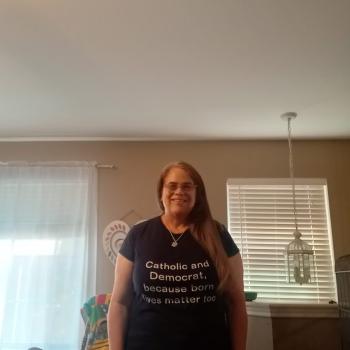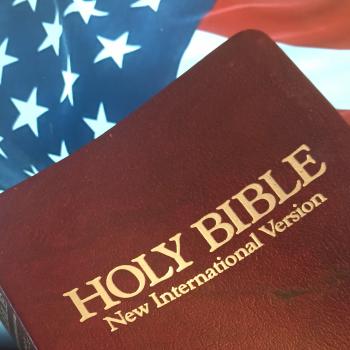So, I guess I was right back where I was when I was nine. There really is nothing better for me to do to allow me to make a difference, even a small one, in the world.
Allison: What is spirituality?
Emily: How much time do you have?
Hannah: Can I just ask my dad?
Allison: That's like asking, "What is CTSJ?" (Critical Theory and Social Justice -- Nina's major)
Nina: I was asked this question during my first Values and Vocations fellowship, and it was not only difficult to answer because of its immensity, but I had never really thought about it before. It never occurred to me to try to define that which cannot be defined. I came to understand that the question is not so much about encompassing spirituality in a few words, but about looking for it, believing in it. It is about acknowledging the spiritual, and grounding myself in its presence. It is the ability to say that slowly walking through grass is spiritual, that dancing around like kangaroos with second-graders at Garvanza Elementary is spiritual, and that chocolate is oh, so very spiritual. But I think one of the key points of my spiritual journey has been understanding how my sense of spirituality and my religion are intertwined.
I have come to realize how my Buddhist beliefs are tied to my sense of self, or perhaps I should say non-self, to my understanding of social justice and to my daily actions. These realizations stemmed from numerous moments. From Nori's teachings in Buddhist Meditation, which not only served as an immense source of comfort and calm, but led to hours of contemplation. To my discussions in ORSL where someone will run in with a pressing spiritual inquiry, like the time Dreitcer came into Lower Herrick asking us how we interpreted God. To Progressive Christians Uniting meetings, an incredibly generous group of students who embraced my questions that would be considered highly sacrilegious anywhere else.
Throughout my time at Occidental I have been able to identify my Buddhist faith and sense of spirituality in a manner that does not restrict, bind, or essentialize. My understanding of the sacred is not something to quantify or qualify; it is merely present.
Nina: Where do you find home?
Hannah: Dance studios.
Allison: The music quad.
Nina: On a zafu.
Emily: Home seems to be in a certain state of limbo that I've found myself occupying for a good deal of my young adult life. When I've been at school I'll often refer to the house I grew up in as home. But, I can't say that that's my home right now. When I'm there I often find myself referring to school as home. I can't say that it's with any particular members of my family. If I'm with my parents, my sisters are often absent from completing the feeling of home. If I'm with my sisters, my friends and the home of relationships I've formed with them is missing. But, if I'm with my friends, the comfort and history that I share only with my family is lacking.
My home is not in any specific food or activity, space or season. Humid weather may remind me of the homey summers spent with my grandparent's home. Cooking up some cabbage may remind me of some of my mom's dishes; drinking a smoothie makes me think of lazy afternoons with my sister. Certain songs on the radio will conjure up the images, places, and smells of the times when I first heard them, or heard them last. My backyard at home, the top of Mt. Fiji, the bed in my room, the dance studio by the beach, especially early in the morning. All of these places and sensations I may find comfort in, but I also find conflict, memories, good and bad, a certain impermanence, a fleeting familiarity with the routines that did, or still do, envelope them.
I can't dwell in any of these places, sensations, or people. But home is in the love, the values, the passions this collective body of relationships has formed within me. And hopefully I can keep those to dwell in within whatever in-between I find myself next.
Emily: What is the most important thing you've learned?
Allison: My mother is always right.
Nina: Where the light switches are in Herrick.
Emily: Don't mess with the squirrels.
Hannah: That, just like with my life, my religion is what I make it. Despite what I now recognize as the best efforts of my parents to instill an appreciation for other religious traditions as well as our own, I was influenced more by the anti-religious sentiment of my hometown and peers. When I came to Oxy, I still held an overly intellectual understanding of my religion. I could appreciate the rich history, the sense of tradition, the worth of sacred writings, and the abiding mystery of other religions, but with all the terrible things done in the name of Christianity, I had no similar understanding of my own faith tradition.




